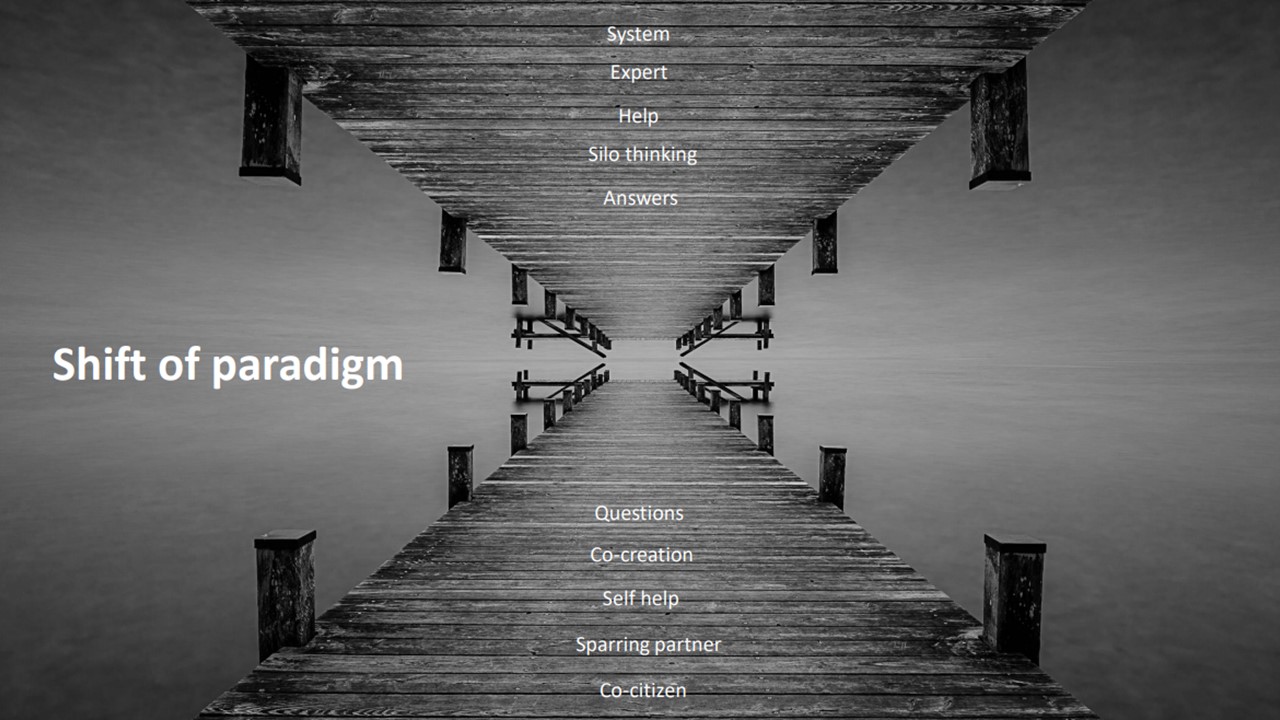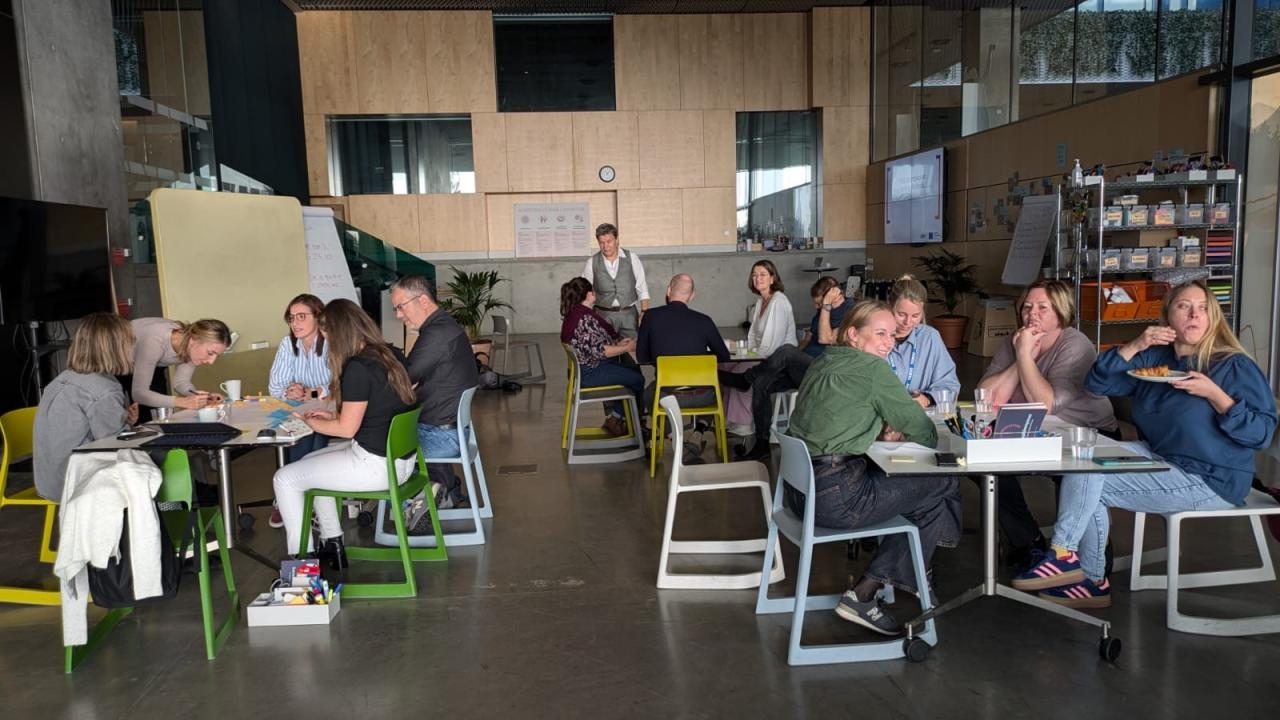During the period from October 22 to 25, members of the Agents of Co-Existence network gathered in Aarhus, one of the partner cities. The first day served as an impressive kick-off, with Lene Hartig Danielsen, head of Citizen Affairs, outlining how the city has initiated a shift in its organizational paradigm. The underlying question is: When aiming to engage citizens as equal partners in the local community, what is necessary to achieve this?

Aarhus articulated this vision through what they call the ‘Aarhus Compass’. This framework describes the type of municipality and, in broader sense, the community the city aspires to be(come). While the city has made significant progress toward the ‘Aarhus Goals’ established by the City Council, they recognized it was not enough. Hence, Aarhus set its sights even higher: ‘Less system. More citizen’. The ‘Aarhus Compass’ emphasizes a more intense focus on what holds value for its citizens and society. The city aims to enhance co-creation in its public welfare development, working, managing, and leading in a knowledge-informed manner. At its core, this approach involves initiating every collaboration by stepping into the shoes of others, fostering local leadership, and leveraging the knowledge and experiences of employees.
The choice to engage innovatively with citizens, the civil society, and other partners is reflected in the Aarhus organizational structure. For example within the Department of Citizen Service, there is a creative unit titled ‘Innovation and Democracy’. This unit is staffed by consultants who works with developing and trying out new methodolgy for democracy, inclusion and digitisation. By retaining knowledge and expertise in innovation, democracy, and organizational development within the city, this structure exemplifies a strategic choice that explicitly allows for creativity and innovation—setting an inspiring tone internally.
Another interesting insight from the meeting concerns how policy choices are mirrored in the culture within urban governance. Language plays a crucial role in shaping practice, and reciprocally, practical experiences influence the language used within an organization. For instance, naming a hub ‘Innovation and Democracy’ enables the organization to cultivate a new practice by creating space for innovative approaches.
In Genk, the lead partner of Agents of Co-Existence, for example a significant decision was made in 2010 to no longer identify citizens from other origins as ‘allochtonen’ (non-natives) from an inclusive vision of coexistence in the city. In addition, references were made to ‘people of Turkish or Italian origin’ only when nationality was relevant. In all other instances, the city opted for the inclusive term ‘Genkenaren’ (people of Genk). This choice for an inclusive approach defined and continues to shape the city’s communication strategy.
Similarly, in Aarhus, during the session on the public library, we noticed the frequent use of the word house to refer to the library, emphasizing it as a central meeting place and a shared community space. This concept of ‘house’ fosters a sense of shared ownership and inclusiveness for all residents of Aarhus through various workshops and offerings that welcome everyone.
With these ideas planted, we invite you to reflect on how language influences and illustrates your urban policies regarding participation and inclusion. What role does language play in shaping the practices, perceptions, and inclusivity of participation in your context?

